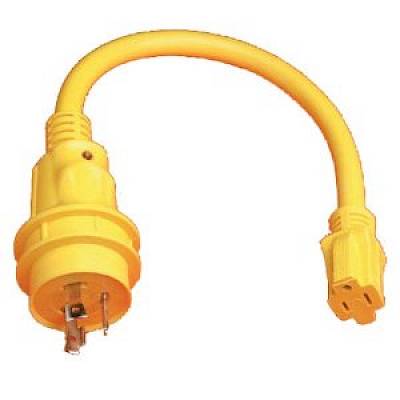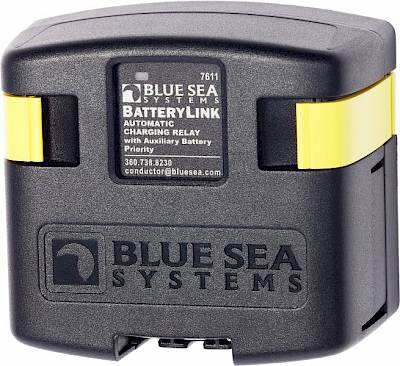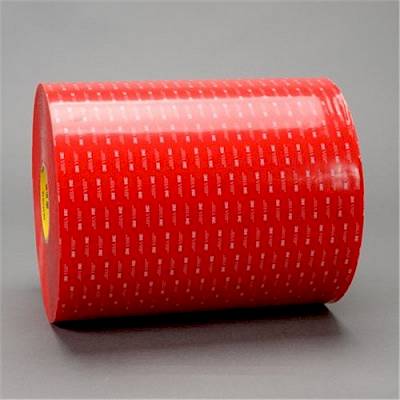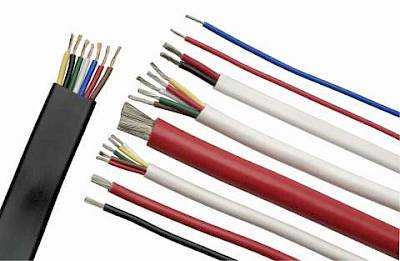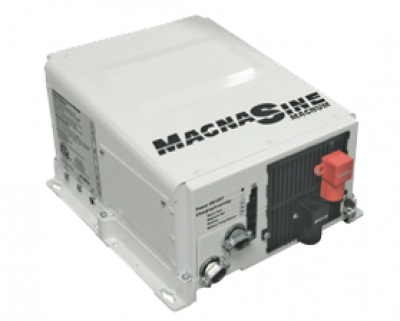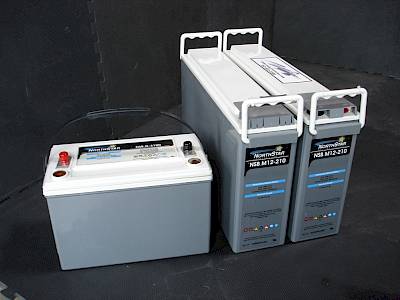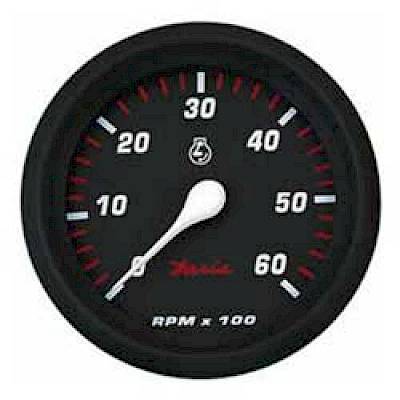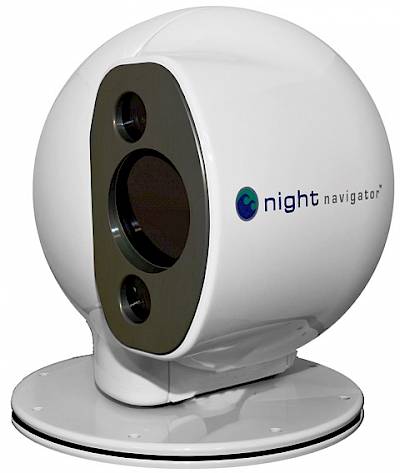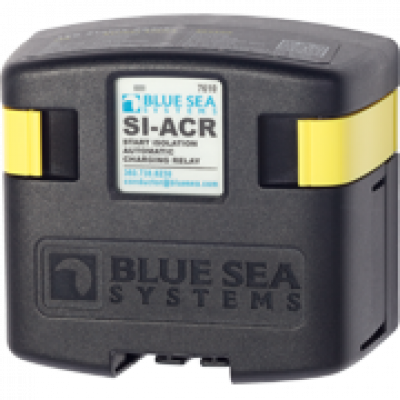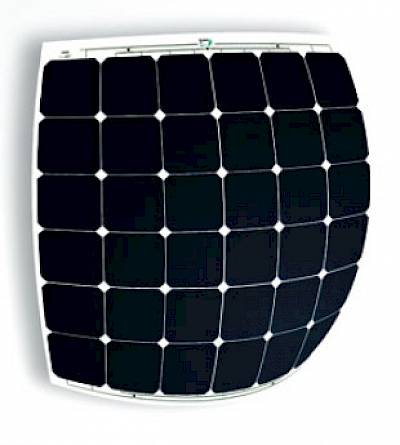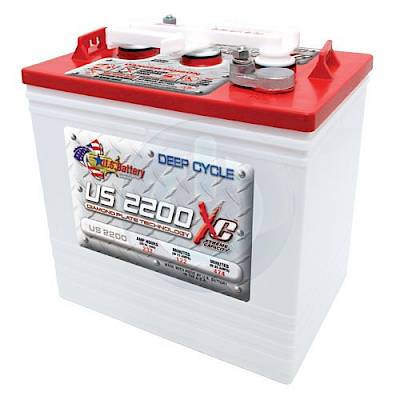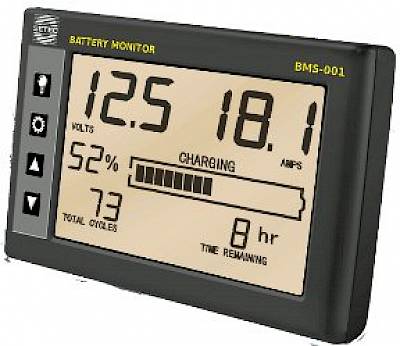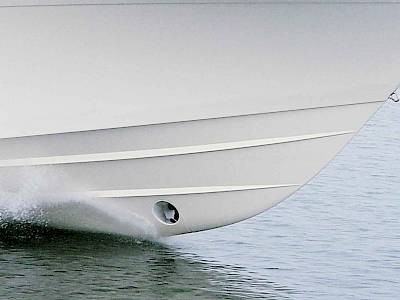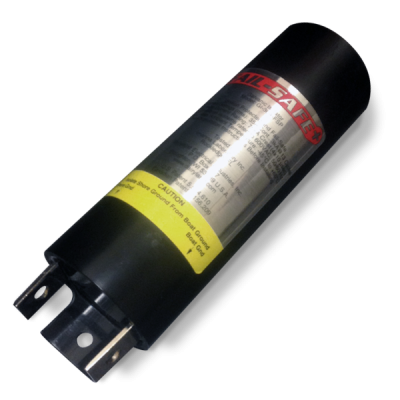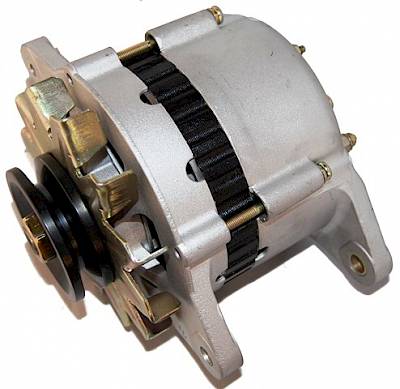How To: Marine Electrical Seminar - Charging Your Batteries - Episode 3 of 12
Transcript is auto-generated.
[Music] good morning everyone good morning thank you for a Bluewater cruising Association for hosting this event power generation is how do you recreate energy it's like earning money it's like having a salary a job it's one thing to have a bank account congratulations you have a bank account and mum and dad could have dropped a thousand they could drop ten grand they could have dropped a hundred but at one point you will run out of money and you need to ask yourself how will I replenish that battery bank right because the battery might come full from the store and that's great like having ten grand in the bank account but what are you going to do when you run out because eventually the battery will drain and you need to replenish it so batteries need to be recharged and that recharging either happens through chargers inverter chargers alternators there's even wind generators there's tow generators DC generators AC generators there's all different ways of recharging a battery and we're gonna look at some of them we're gonna be talking about a charger right here on the slide right a charger is a converter we're gonna talk about an alternator we're gonna talk a lot about solar and we're gonna talk a little bit about fuel cells but also an alternator is really sort of in Agenor DC well not a DC general but a wind turbine or tow gen are really very similar to alternators right something's rotating and spinning and creating an output so all those devices would always be connected to us which distribution Chargers used to be called converters that word died because they would overcharge batteries and so the marketing departments were smart enough to abandon that word it's like certain names in history are never given to children again right there's certain names from world war ii that nobody's ever had again as a kid and a converter is not a name that nobody's giving to any devices anymore they just simply don't do it it is the device but nowadays they call them chargers and when they call it a charger what they're trying to symbolize is that it's a three-stage battery charger so it goes through bulk absorption float converters were just devices that would convert AC to DC and in comparison an inverter inverts DC to AC right so convert and invert are just mirror opposites of one another so a battery charger what's the fuel for a battery charger and honestly that question happens 500 times a year and people say what happens when I'm running my engine it does my battery charger work and the answer is no a battery charger it needs an AC source and it's confusing because you're thinking alternator AC alternating current right same word but that's just bad choice of words the reality is that your charger on your boat your converter will only work if it senses AC and it the input is AC it can either come from shore power right connected as a dock or running an AC generator running your main engine propulsion engine will not involve the charger whatsoever and that's a really good concept that is often overlooked is that your charger has no bearing when your engine is running unless you're running the generator at the same time but when you're underway and you've got propulsion your battery charger is not at play meaning your battery charger could be shot it could be thrown overboard it could be dropped in the ocean doesn't matter your battery charger has no involvement and it's not at all related to when your engine is running okay those are completely separate things and that's important for troubleshooting because sometimes you're going to lose one but you don't lose the other most boats have a battery charger and an alternator most of us okay so it's not uncommon to have both devices now of course if you're a cruising sail boater and you're going offshore and you value money you're not going to be connecting to shore power all the time because Doctson races that are nice destinations outside of British Columbia are extremely expensive and people tend to shy away from going to marinas for reasons of cash flow there's just ridiculously expensive you can't do it every day it's be like staying at room you know in a 10-year journey at one point you need deep pockets for that and so most people end up anchoring and they recharge their batteries not with battery chargers but with alternators but for now what we're gonna talk about is a battery charger battery charger can either be single output or multiple outputs right they can have one battery connected to it or a battery bank it doesn't matter but they can have up to three battery banks one example would be a sailboat would be house batteries could be made of one or ten batteries it doesn't matter that's a bank and then an engine start battery and maybe a windless battery or a thruster battery right so you could have cell boaters I think about hunters and bigger the boats eventually they started having thrusters because you know they have a lot of side winds and the decks are pretty high nowadays and so your docking a 50 foot sailboat or 45 foot sailboat it's not unusual to have a bow thruster that bow thruster might have a battery bank and so you have a battery charger that might have an output for the engine battery the house battery and the thruster battery bank and remember a battery is not a single thing it could be made of a bank it's made of multiple batteries or a battery so a battery charger can charge multiple battery banks okay so it's either one two or three I've never seen a four I'll go you know that doesn't mean they don't exist but I've never seen a four so in this case is battery charger powered from AC is charging to an engine battery and is also recharging a house battery okay notice how important it is there's fuses 95% of you unless we did work on your boat don't have fuses on your on your battery charger circuit 95% of you and the reason is men are too good and too infused with knowledge to read a manual and so it's dumb to read a manual and they don't do it and that includes the manufacturers by the way every single person that's ever worked on your boat most people are simply born with the gift of knowledge and so unrelated though they make errors but they're not there to realize that they've made those errors and so 95% of you do not have battery chargers that are fused and if they are fused they fuse them at the wrong place because again they didn't read the manual so look for your battery charger fuses and they should be at the engine and the house battery but in this case if it's connected to a nun switch distribution which it should the fuse is right here right or in some cases if it's a smaller boat like I don't know you have a 26 or 30-foot boat and it doesn't have endless stuff on it because there are 30-foot boats that have a lot of gear on them like a cot water for example as crazy as as big as a 45-footer in gear they won't have all the connections to battery because there's just way too much things on a 30-foot cut water so they have also what are called unsession because otherwise the battery post would be have 20 30 connections on it so that's what a battery charger does it basically recap charges your boat from a shore power from an AC source either Shore Jen right smart battery chargers reduce the time it takes to charge your batteries in the past battery chargers before being smart when they used to be call converters they were overly cautious on the charge time but then they overshot and it's not uncommon to hear boaters that were boating in the 70s and 80s that would never be able to leave their battery charger on their boat 24/7 they would actually have toxic Club members they would go down to their boat before they go on a trip and they would actually turn on the charger overnight before they go because they knew that if they love their charger on for a month or two months they would boil their batteries the Chargers were overly charging at the top-end at the end and they would basically the word float is a recent word they would trickle charge nobody uses trickle charging anymore trickle charging again as a marketing word it's a word that we define a definition to and that would cause the batteries to blow over so boaters that have old chargers end up having to literally manually turn their charger on or off because if they leave it on for a month or two months they'll come back and their batteries are going to become completely empty the electrolyte even if it was an AGM they kill it these you can't save an AGM that's overcharged and you can't change the flooded lead-acid battery if it's overcharged too if it's dry it's done and those batteries you get that sense of it smells like rotten eggs that's the smell you come onboard so you want a smart battery charger if it doesn't say smart on it it's not smart there's trust me Mercedes always puts their logo on a car they don't build a car without putting their sign on it if it was smart they would label that smart nobody's gonna put a product and not advertise their product if it is what it is it'd be crazy it's like there's no way GM battery doesn't brag about being a GM maybe why would you do that I mean you people were like why do I pay twice oh it's it's a hidden AGM you don't know surprise no it's not gonna work like that okay so you want to make sure that your battery charger is a smart battery charger and if you have a good battery charger your battery life is going to be what you would have hoped for if you don't deplete the batteries too low but if you've got a good battery charger and and it's the right size and it's a smart one and your batteries are never depleted below what we talked about you know the 50% 30% 20% and if you love your batteries and you have the right charger your batteries are going to give you a good life but the charger is essential you got to make sure it's to be faced right the other thing too three phases is what we talked about earlier we had a question bulk absorption float right so think about that seven-course dinner you know you're chowing down you're super hungry you haven't eaten for a day you know your first four courses go down like no problem you know around five and six you're taping off like it's it's hard but you're powering through because you want to get to the top and then once you get to seven you're like that's it I can't do no more and then you go to float okay you want a charger that has float if it says trickle charge on it and it's not worth having on your boat it's an anchor it's it's dead weight get it off your boat you want a battery charger that can allow and we had a question earlier about you know having if you've got AGM batteries and you're changing to age well if you're going to a gym you need a battery charger that has an AGM charge profile on there because you can't have a flooded let out or an AGM battery on a flooded lead-acid profile you can't do that well you can but again your battery life is going to be shorter than you want you also want chargers that are temperature compensated I want to emphasize this is so critical when we think about battery voltages we're thinking about numbers like 14 4 13 3 12 6 12 to 10.5 all those numbers if you've ever heard them and you're thinking oh yeah yeah you're talking about you know absorption voltage flow voltage full battery 50% dead those numbers are all at a temperature compensated battery of 77 degrees Fahrenheit the moment the battery temperature goes lower the voltage goes higher if the temperature of the battery goes higher the voltage needs to go lower there's an inverse correlation between battery temperature and voltages so in the summer when you're charging your batteries if you had a temperature compensated charger your voltages are gonna be lower than you would ever see you'll be like oh that's weird my battery's never made it to 14 4 they only made it to 14 1 is my charger damaged no it's your batteries are warm you know the water is now warmer the air the ambient air is warmer but in the winter now it's much colder and your boating IC batteries that go up to 15 volts people are freaking out oh my okay alright let's calm down all good all right I'm gonna walk you through this disconnect your temperature sensor from your charger let's see what happens and then suddenly the Bell voltage drops a 14-4 I'm like you can please yourself by you're charging the batteries in staying at 14 for it's the same thing I eat more in the fall in the winter than I do in the summer again remember that human analogy batteries are like people I have a bigger appetite in the winter when it's colder then I do in the summer I lettuce salad super light things in the winter time don't give me that I'm preparing for like the dark days am I getting ready for hibernation your batteries are exact same thing they want higher voltages in the cold temperature lower voltages and if you have a temperature compensated charger guess what's going to happen to your batteries they're gonna live longer right and that's why you want a temperature compensated battery charger so I'm giving examples of different chargers I want to emphasize this is ignore at your peril ignore it your peril and I get that oh my god at least three times a week question Jeff my batteries are dead my charger doesn't work I'm gonna go to Kitty and tire and I'm gonna buy a cheapo battery charger and I'm gonna connect it and I'm solved and I won't see you until mate because I solved my problem I'm like you you should yeah yeah sure yeah absolutely no problem just so you know a marine battery charger does this lovely thing of not actually connecting the neutral and the ground on your battery charger they do that marine battery chargers have an isolated ground in neutral they are not connected as they should be because if you have a ground connected neutral and ground you're bypassing your isolation transformer and your galvanic isolator and I've gone on surveys where the underwater metals we're completely destroyed like I mean eaten away gone and then yet they had a galvanic isolator onboard they basically bypass it's like literally blowing a hole in your wall protecting your boat you're literally opening your boat to Straker and corrosion so never ever ever ever bring a non marine battery charger onboard your boat now if you do so and you have straight current corrosion in your marina and you've been fine over the years because you have a galvanic isolator now you just brought the drawbridge down you said to you know the barbarians at the gate you come on in and have fun my underwater medals are for your use and your use only and unrelated I'm gonna get a 20 30 40 50 60 thousand dollar bill for underwater metal damage you know you could lose your keel your skeg your prop your shaft right haul out you pull your boat it looks like World War 3 underneath it looks like literally termites went to town and is because you had invited streaker and corrosion on your boat why because you decided to take a shortcut and the shortcut was a non marine model never ever break now if you take those batteries out of the boat and you put them on the dock and you do them at home there's no problem but you remember your boat is not your home it's completely different than a car you can take the batteries home and charge them at home no problem but you cannot have your boats your batteries connected to your boat and connect a non marine charger on those batteries black and white and if you do so well it's gonna be interesting I can promise ok installation tips on battery chargers we talked about this right really important 10% of the battery charger rate I cannot emphasize enough how often I see folks where they have large battery banks and no one thought about looking at the battery charger it'd be like building a third and fourth and fifth story to a traditional home where the basement was meant to support only one level you can't just add levels to your house you can say hey you know what let's just let's do a high-rise let's I'm thinking the Builder must have thought about me maybe doing a high-rise we're willing to spend the money upfront unbeknownst to me with no benefit to them and they gave me a boat that will do anything I can ever imagine not gonna happen now builders don't do that because it's not prudent financially unproven so why do they do they build their Chargers to the battery bang they put on the boat you change the battery bank on your boat you change the charger there's just no way around it no way around so the question is how do you size a battery charger you size a battery charger for the nominal battery capacity of all deep-cycle batteries on your boat so if you had for example two house battery banks which is pretty rare nowadays pretty rare nobody does that anymore but let's say you had an inverter bank and a house battery bank and an engine starter battery you would add up the nominal capacity the rated capacity of your inverter bank the rated capacity of your house bank you would add them together so if you had a 400 ampere a power inverter bank a 400 amp hour deep house bank those are now 800 rated capacity you would need an 80 amp charger for that battery bank minimum remember I did a presentation I did this presentation at blue waters this year in January so 910 months ago and the fellow hosting the presentation was a field tech in Alberta and he had a I never it was so interesting the way he was describing and he was saying the standards are the minimum they're never what you shoot for right and and that's what's so weird about the marina environment is people think that it's a lofty goal you know this sort of like well you'll never get there so don't really try but if you're halfway to the standard you're good in the moon in the land world like on land people go beyond the code the build is the minimum you need to do it's not what you're targeting and so 10% is minimum you can go higher you can do 15 now you can't go 400 percent right but like for a lead-acid battery is gonna be between 25% and 10 so I often do 15-20 percent right but minimum is 10 the other thing too that's really popular is people are gonna say well Jeff my battery bank is larger than any inverter charger or charger that's available like think about it the larger charger you can buy right now at 12 volts is a hundred and fifty amp charger that comes with a 3000 watt inverter charger that's it you can't get bigger there's no single charger that is a Marine that is bigger than 150 amps at 12 volts and it comes with an inverter charger it's a 3000 watt inverter charger Jeff my battery bank is bigger than 1500 amp hours I want to charge at a faster rate and my battery bank is bigger so what you end up doing is you end up adding stacking multiple Chargers in parallel to increase the charge rate so on some boats I have two Chargers running in parallel three Chargers running in parallel right because some of the boats I'm doing the battery banks are 3000 app hours I can't get a 3,300 am charger so I start adding them I stack them or some boats are gonna have to inverter charges on the wall right big boats to inverter charges on the wall both inverse are either playing they can give you double the inverter capacity and double the charging capacity not unusual you'll have two charges on the wall two inverter Chargers each outputting 150 and now you're gonna have your charge rate is going to be 300 amps coming in your battery bank so you can stack chargers and you stack Chargers to meet the minimum charge time or to get a lower charge time for example very common with a lot of boaters is Jeff I have a thousand amp hour battery bank and it takes forever to run those batteries back to 85 percent I'm running my generator eight hours a day it's driving me and the missus crazy I we've got sailboat errs as friends we want to keep them as friends you know like we go in base you know we don't like to have the sideway glances we get it eight hours is unacceptable to run a generator I'm just not comfortable with doing that help me bring my generator run time less well how you would do that is by stacking chargers and so you add multiple you have a 150 and then we might add another 100 and then another 100 and so I might get 350 amps of charge rate right into a firefly battery bank and it can take it no problem right but I couldn't do 350 and a thousand that's 35 percent in a flooded but I can easily do that in a firefly back and now the battery bank instead of charging at a hundred amp 150 amp rate it's charging at 350 so some cases I bring the generator run dying from eight hours to two hours that evokes an emotional response from people I've had partners their wives hugging me like oh my god thank God where have you been all my life I've been here all the time I'm like why haven't we met you for the last four years I hate my generator now two hours a day it's sort of reasonable right two hours at 8:00 not too bad eight hours a day at one point I asked myself is it better just leave it all the time make it your normal and at that point it's sort of like it never goes off it's a generator on boat you know oh that's no you sort of like it's in the background I'm gonna lose my hearing but it doesn't matter you know it's okay so that's a way of doing that and that's actually pretty common on trawlers you know we do that a lot on trawlers and we'll just end up stacking multiple chargers yeah question if I Jeff if I have it thousand amp hour battery bank and I have you say that I should get a hundred amp battery charger what's why is the implication what if I only have a fifty amp charger what's the implication and that thought that you brought up Murry is exactly the reason why people don't follow rules they think well what's the implication is just gonna take twice as long to charge the battery bank I mean I'm charging it fifty before I was a hundred it's just time I've got time when I connect to shore power can taking the time you want the challenge is is if you do not have enough pressure which is amps on that charger to go 200 amps when your bulk charging because it only matters in bulk you will not reenergize the whole battery you'll reenergize 99% of that battery 98% but the next time you go charging that 2% that never got recharged the first time or 1% it's gone next time you're charging 99 of 99 next time that it's 98 99 of 98.1 and then you start doing fractions of fractions of fractions of fractions and that's where people like myself asked you did your batteries die suddenly no no they didn't die suddenly they were just I only had two years with him I don't know why it was just there was nothing sudden it was just but now there's nothing left because if there's no sudden event there's no catastrophic failure is that chronically you were recharging your batteries a little bit less it's like giving you 100 calories less a day if I had 100 calories less a day that I need I wouldn't feel it I'd live but every day 100 calories left I'm gonna die I can't I can't have less than I need but it's won't be catastrophic you won't see it on the voltmeter your battery monitor won't even notice everyone's gonna be happy but if you chronically under eat just by a little it's not enough and you will die and that not enough is because you're not charging and bulk rate at enough to re-energize all that surface area on that battery so hence you have to do 10% minimum and every builder on earth does ten I mean it's sort of there it's just what happens is the moment we get our boats were like wow that's not enough batteries I need more batteries I can't I mean you can't do this and then you add more batteries and then you don't think about the charger yeah so the question is if I have a thousand amp hour battery bank and I have a hundred amp battery charger will I meet my 10% requirement yes you will 10% is the minimum and you will now is it better 15 yeah 17 18 the middle of a range is better so if the range is 10 to 25 then you want to be around 18 percent but 10 percent is is good enough it's it's the minimum that bigger is better but not too big because then you're wasting your time because the battery can't take that higher charge rate you can't go higher than 25 percent 18 percent would be a good number if you're gonna shoot the middle of the middle would be good so do 180 amp hour 180 amps on a thousand a power battery think the question is if you've got a thousand and power deep-cycle battery bank and you have an ad for example battery and it's a two hundred and amp hour it's not two hundred amp hours but it could be it's a starter battery so I don't know they wouldn't measure a starter battery Knapp hours they would measure it in cold cranking amps but you know let's call it it is 200 amp hours just because I know but they don't label it on the box they're gonna call it 1800 CCA do you have to worry about the engine battery no you don't because an engine battery never depletes below 99% 98% the 10% applies to the deep cycle portion because your engine start battery or a starter battery should never ever ever ever be brought down below like 95% if you use your starter battery as a deep cycle well you're gonna ruin your battery so quickly and or if you do it so often like people that do it unbeknownst to them your battery will explode I mean that's a good reason not to do it an explosion is something honestly if you have your partner on the boat when a battery explodes you're switching over to RVing like it's guaranteed or it's in the cottage industry or simply we're staying home and we're gonna explore gardening to they're like it's not gonna happen right there's no way this was not part of the deal like explosions are not part of the experience so yeah don't worry about starter batteries starter batteries are never meant to be deep cycled and so bulk doesn't ever apply to them if it's why properly the question is if you've got a dual purpose AGM battery and you're using it for engine should you include that battery in your calculation of the minimum of 10% no it's only batteries that are used for deep cycle applications ones that are going to go to 50 percent of capacity so the question is recommendations on inverter chargers no Chargers and I made recommendations on chargers whenever you're buying gear for your boat if you've never heard of the brand and no one's ever heard of it and people are like oh interesting write code for what the hell have you done do not buy a brand that you've never heard of or never seen anywhere okay so you've got to go with things that don't have weird names that have never been heard so you stick with the known stuff like master volt Magnum zan tracks Vic Tron you know like like before trace right was huge I mean now it's Magnum but like big names where they have something to lose right where they don't want their reputation right to be lost so go with well reputed brands because remember if your charger fails not all Chargers fail under charging some fail over charging and you could overcharge a battery bank that's gone so not only do you lose your two thousand dollar charger but you lose your 2,000 3,000 4,000 5,000 dollar battery bank and the manufacturer of the charger does not care it's only replaces the charger it will never replace what it damaged hence chargers are not to be taken lightly overcharging is a very serious problem if it happens you're done it's sort of like honestly being force-fed if you're force-fed you're gonna explode and the battery will explode and there's no coming back from that
2018 Boat Show Presentations
Understand and Wire Your Boat’s Electrical System
How To: Marine Electrical Seminar - Wiring Essentials - Episode 8 of 12
Understand and Wire Your Boat’s Electrical System
How To: Marine Electrical Seminar - Troubleshooting Your Electronics - Episode 9 of 12
Understand and Wire Your Boat’s Electrical System
How To: Marine Electrical Seminar - Inverter/Charger - Episode 4 of 12
Related Content









